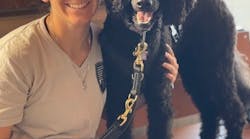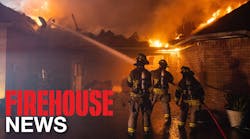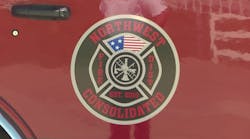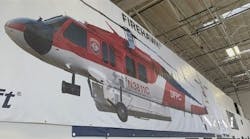I've always wondered what makes a person become a firefighter/paramedic. What drives people to consider a profession in which they fight fires, perform specialized rescues and deliver emergency medical care to others who are sick or injured?
I know why many people my age chose this career — they watched the TV show "Emergency!" with all the action and excitement that Johnny and Roy dealt with on each weekly show and said, "That's for me!" Back then, we didn't have 500 cable or satellite channels. At the most, there were about a half-dozen channels, so the TV show got plenty of exposure since whatever audience it attracted was divided among a few channels instead of hundreds. I wish I had a nickel for everyone who said they became a firefighter/paramedic or paramedic because of watching "Emergency!"
The excitement and action, however, were not the only factors for some. If you were to look at a psychological profile of paramedic (and I cannot find any scientific documentation to support this), I would conclude the following. First, most firefighter/paramedics are proud of what they do. I have not run into many in my career who were ashamed of their profession. As one good friend says, "We are the only people who can come through your back door at 3 in the morning and go into your daughter's bedroom, who is in her nightgown, and you do not have a concern about it." Thus, most firefighter/paramedics are respected and trusted by the public. With that respect comes pride in the job they do.
Next, firefighter/paramedics are problem solvers who think analytically about the situation in front of them and come to some path that they will follow to a solution. Paramedic school has taught them to assess, assess and assess some more. You have primary assessments and secondary assessments, then you have continual and further patient evaluation. Whether it is blood pressures, EKGs or respiratory rates, each assessment sends paramedics down a path that brings them to a conclusion of which protocol to follow or how to treat the patient. Then, they may have to adjust treatment further into a call based on a change in the patient's condition. All of this has taught the firefighter/paramedic who is faced with a problem to analytically assess the problem and problem solve to make the situation better. Many times, it is only one or two firefighter/paramedics working by themselves to assess the situation and then find a solution.
Another characteristic of firefighter/paramedic is someone who is intellectual. There is no denying that you need brains in order to absorb all the medical training you receive, including all the pharmaceutical drugs, dosages, anatomy, physiology, biochemistry, medical procedures, drug calculations, cardiology, metabolic disorders, etc. Plus, typically you must train for and pass certifications for Firefighter I, Firefighter II and hazardous materials, along with possible others, including specialized training such as confined space and marine rescue. That's a lot of training and education, so I'm not surprised when firefighter/paramedics perform well on promotional exams. They are already in the habit of studying, not only from all their schooling, but from constant re-certifications.
I think the majority of firefighter/paramedics are also dependable. The bulk of firefighter/paramedics I know from working in two different major cities, plus traveling the country, tells me that they are reliable, trustworthy and responsible. They take their job seriously. Some may be suffering from burnout, but the majority I have seen, even if they are suffering from burnout, roll up their sleeves and go to work when there is a serious call where a patient is in deep distress. Although there are exceptions to the rule, the vast predominance of firefighter/paramedics are going to do the right thing when it comes to taking care of people.
Another distinguishing point about firefighter/paramedics is they know how to have fun. They know how to laugh. They know how to enjoy life. I think they have learned how to cope, laugh and forget the worst that they have seen that can happen to someone else — whether it involves loss of life or all their possessions in a fire.
Of course, there are always exceptions. Some do our profession dishonor by doing the wrong things — knowing that they are wrong. Others are not suited for this profession. Either they do not have the intellectual capacity or they do not care. Some get the message to get out while others linger on and typically are forced out by management.
Some get the message early on. I remember one person who handled a serious patient on his first day on the job. He delivered the patient to the hospital, told his partner this is not for him, got on a bus outside the hospital, went back to fire station, got his in car and never came back.
Hopefully, you are one of those firefighter/paramedics who has the right philosophy for the job and does not need to get on the bus.
GARY LUDWIG, MS, EMT-P, a Firehouse® contributing editor, is a deputy fire chief with the Memphis, TN, Fire Department. He has 32 years of fire-rescue service experience. Ludwig is chairman of the EMS Section for the International Association of Fire Chiefs (IAFC), has a master's degree in business and management, and is a licensed paramedic. He is a frequent speaker at EMS and fire conferences nationally and internationally, and can be reached through his website at www.garyludwig.com.





